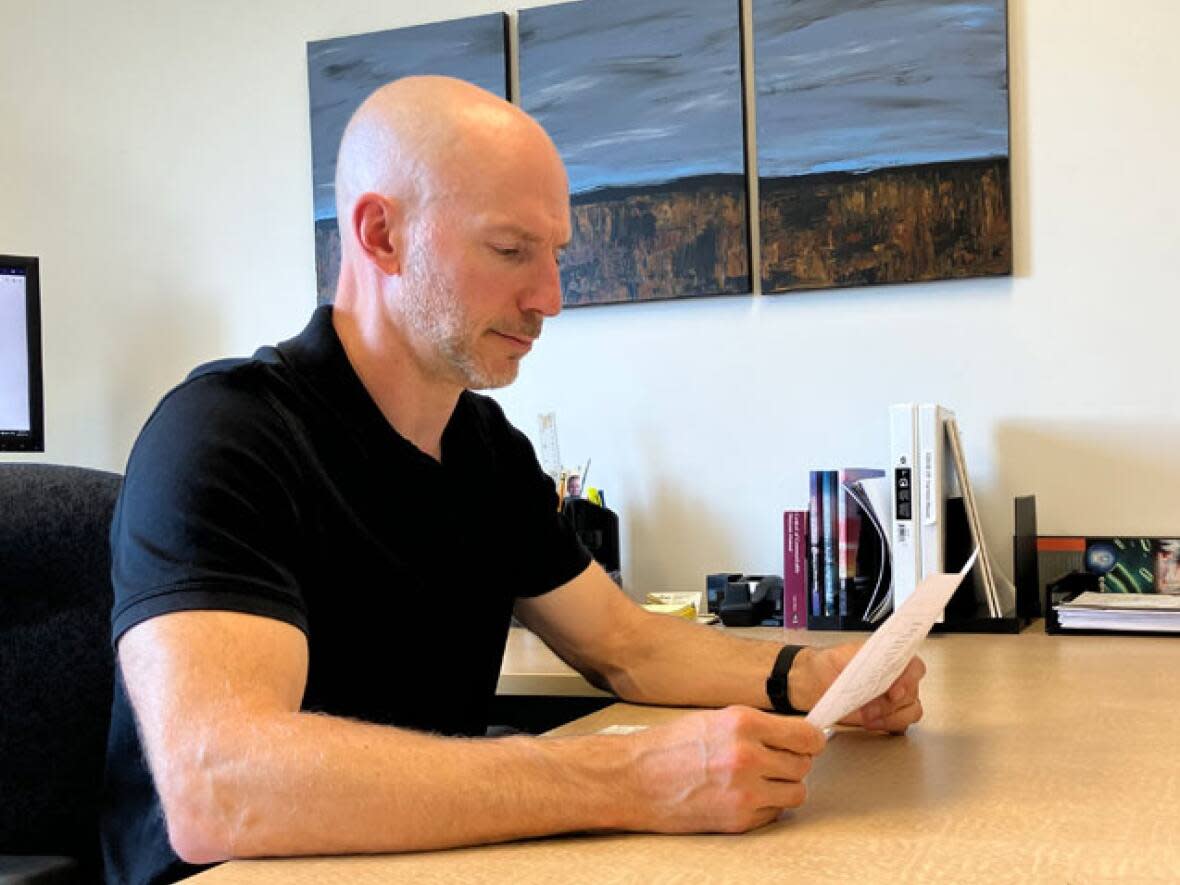Street drug found in blood of 9 sudden deaths, N.B. medical officer of health warns

The Department of Health is warning about a street drug called bromazolam that was found in the blood samples of nine sudden deaths in New Brunswick over the past five months.
Bromazolam, a drug not approved for medical use in any country, is a type of benzodiazepine.
Also known as benzos, they are prescribed for sedation or anxiety management, said Dr. Yves Léger, the province's acting chief medical officer of health, in an interview.
He said when the coroner's office investigates a sudden death, blood tests are done to check for drugs.
An investigation into the deaths is still underway, according to an emailed statement from the Department of Justice and Public Safety. Spokesperson Judy Désalliers said the department can confirm the drug was present, but doesn't yet know if it was the cause of death in these cases.
Léger said most of the deaths were in the Moncton area, but said he doesn't have further details, such as the ages of the individuals who died.
Measures to reduce risk
One thing about the drug that is "unfortunate," said Léger, is there is no way to detect it and there's no control over what ends up in street drugs.
He said the information is being released to the public to inform and raise awareness.
There are measures that people who use drugs can take to reduce their risk, he said, such as not taking multiple drugs at one time, never using drugs alone, only taking a small amount to start and having naloxone on hand.
Naloxone doesn't have any effect on benzos, but it can help reverse the effects of opiates like fentanyl, which was also detected in some of the sudden death cases.
Léger said he doesn't know how much of the drug would need to be consumed to produce adverse effects. He said that's one of the difficult parts when dealing with a drug that isn't used for medical purposes.
"The other complicating factor, as well, from what I see in the literature, and what we've seen here in New Brunswick, is it's often times found with other drugs, so it becomes even harder to separate out what kind of effects bromazolam is having on an individual."
'You just don't know what's in it,' police say
Cpl. Hans Ouellette of the New Brunswick RCMP said police are aware of the presence of bromazolam in the province, but he doesn't have statistics on its prevalence.
Ouellette said because there are so many dangerous drugs in circulation in the province, "there's no real way to know if what a person is consuming may contain one of those highly dangerous drugs."
"You're rolling the dice on your life when you're taking anything that is, you know, a controlled substance or an illegal substance, because you just don't know what's in it," he said.

 Yahoo Movies
Yahoo Movies 
